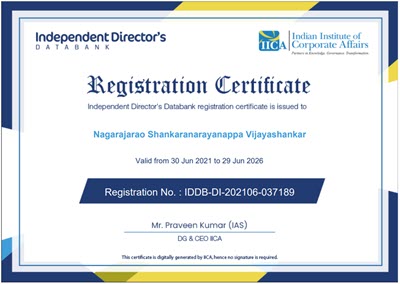Often in our professional career, we get into a conflict between what we believe is correct and what is happening around us. A large number of professionals in whom the “Fear of Failure” dominate, tend to avoid opening out with their thoughts because they may be either not confident of themselves or are more concerned about being ridiculed.
It is a fact of life that there is always a “Resistance to Change” in the community and when we challenge the established order, we do have many people who would call the move thoughtless or risky etc. Some may call it as premature unethical etc. It is possible that many of the thoughts from the thought leaders appear premature because the society around may not be ready for it. Hence a fair amount of such resistance is normal and the person who believes that he is moving in the right direction needs to overcome such murmurs and carry on.
I don’t intend a theoretical discussion on these concepts of leadership at this point but just to give a few examples of recent developments in my work space that made me reflect on these aspects.
In January when I released my book “Personal Data Protection Act of India (PDPA2020)” many of my friends were disturbed. The book was based on the Bill pending before the Parliament and which had not yet technically become an Act. By naming the book as it was named, I was exercising the author’s prerogative to give a title to a Book and explaining it in the content that it is the name used for reference only. I had used a similar nomenclature of ITA 2008 for the amended Information Technology Act 2000 which also at that time drew some objections from experts. I agreed that the experts had a point of view which was not unreasonable but insisted that I had the right to use an alternate “name” which was useful for me to pass on a concept. I opted for utility versus convention.
Then came the launching a “Certification” program from the Foundation of Data Protection Professionals in India (FDPPI) to confer the title of “Certified Data Protection Professional-Module I” covering the training in the proposed PDPA. This also caused a stir as many thought it was premature to award certifications for an yet to be made law. But the need of the community was that sooner or later this law would come and from the first day there would be a need for professionals who are aware of the law. This would be possible only if some body took the lead in creating the certification program and FDPPI went ahead with its program.
Recently State Bank of India and Tech Mahindra have released recruitment notices for recruiting Data Protection Officers and both have asked for people with certifications in GDPR knowledge. While GDPR may be relevant for both organizations, the lack of awareness of the emerging local data protection laws and the need for the DPOs to be aware of them was missed by both HR departments. Hopefully the certifications created by FDPPI will be noticed by the HR departments who will be recruiting DPOs in the coming days.
FDPPI is now embarking on another major initiative shortly which will also shake the established system. I may wait for a couple of more days to make an announcement in this regard, but as we prepare for the same, a thought occurs that the saga of the Bold First Step inviting a potential critical reaction seems to continue.
Will come back more on this in the next few days…
Naavi










